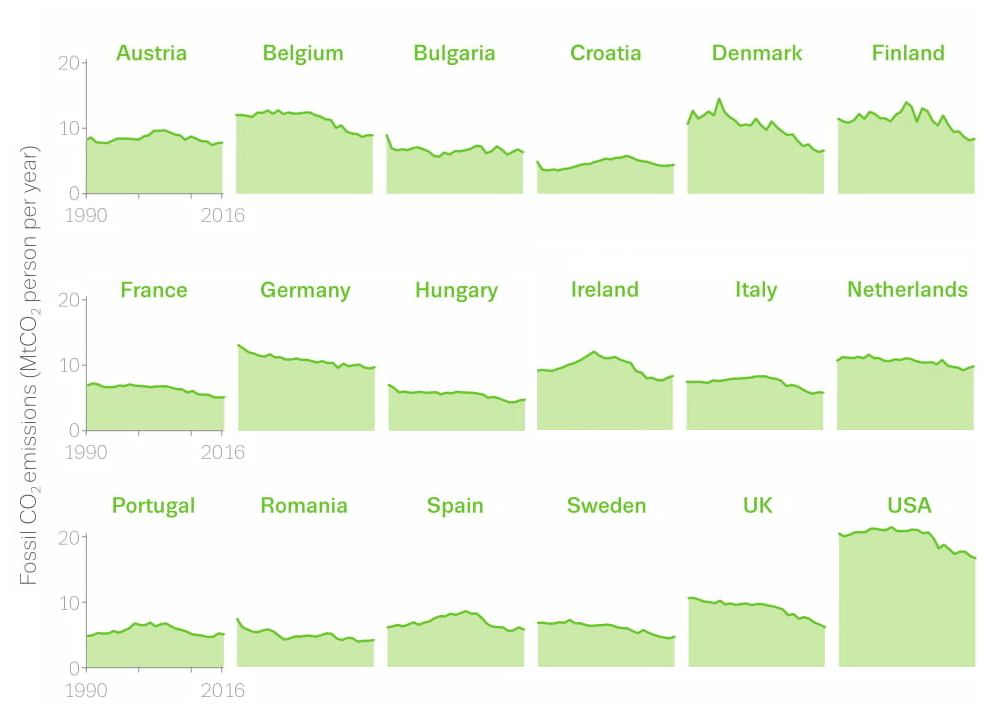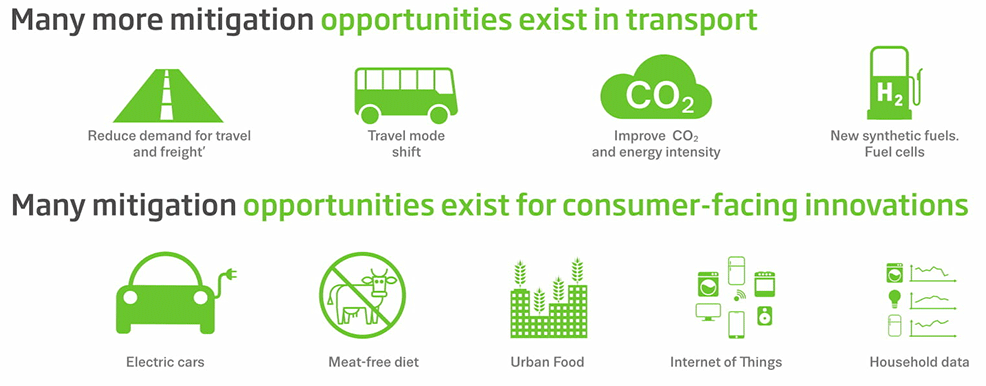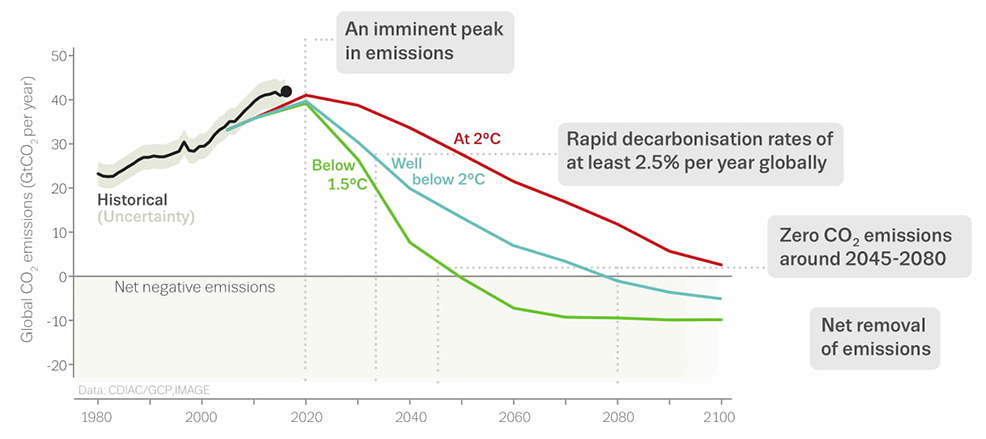
27th February 2019 Climate policies are effective at reducing emissions Efforts to cut emissions of carbon dioxide (CO2) and tackle climate change in developed economies are beginning to pay off, according to research led by the Tyndall Centre at the University of East Anglia (UEA). The study suggests that policies supporting renewable energy and energy efficiency are helping to lower emissions in 18 developed economies. This group of countries represents 28% of global emissions and includes the UK, US, France and Germany. Researchers analysed the reasons behind changes in CO2 emissions in countries where emissions fell significantly between 2005 and 2015. The findings – published in Nature Climate Change – show that the decline was primarily due to renewable energy replacing fossil fuels and to decreasing energy use.
However, the drop in energy use was partly explained by lower economic growth reducing demand, following the global financial crisis of 2008-2009. Significantly, countries where CO2 emissions decreased the most were those with the largest number of energy and climate policies in place. Countries with declining emissions were compared with countries where emissions increased. The researchers found that policies encouraging energy efficiency were linked to cuts in emissions across all countries. They also found that policies encouraging renewable energy were linked to cuts in emissions, but mostly in developed economies with decreasing emissions only, not elsewhere. Overall, the data suggests that many countries are making progress in cutting emissions. However, these efforts need to be expanded and enhanced to limit the global average temperature rise below 2°C, in line with the Paris Agreement. The authors argue that "untangling" the reasons underlying recent changes in emissions is critical to guide efforts to halt climate change. "One of the messages that comes out of our analysis is that policy matters, and the efforts of policies," said Prof Corinne Le Quéré of the Tyndall Centre for Climate Change at UEA. "You need to have a lot of big policies in place and policies at the national level; policies that are well-funded, that are regulated." "Our findings suggest that polices to tackle climate change are helping to decrease emissions in many countries. This is good news, but it's just the start. There is a long way to go to cut global emissions down to near zero. Deploying renewable energy worldwide is a good step, but by itself it is not enough. Fossil fuels also have to be phased out. "We have the technology: you put the effort in place, you develop the policies, you fund them, and then you get emission decreases."
"New scientific research on climate change tends to ring the alarm bells ever more loudly. Our findings add a thin sliver of hope. It is possible for countries to peak and then decline their emissions year in year out," said Dr Charlie Wilson, also from UEA. "Eighteen countries so far have shown us how concerted policy ambition and action on energy efficiency, renewables, and climate targets can work. Now we must make sure these early precedents become the rule not the exception. This is a huge global challenge." Global CO2 emissions would need to decrease by about a quarter by 2030 to limit climate change well below 2°C, and to decrease by half to stay below 1.5°C. Global CO2 emissions increased by 2.2% per year, on average, between 2005 and 2015. "Global carbon dioxide emissions rose in 2017 and 2018, suggesting that the rapid rollout of renewable energy has so far not been sufficient to arrest the growth in fossil fuel use," said study co-author Dr Glen Peters, of the CICERO Center for International Climate Research in Oslo. "Energy and climate policy has been successful at supporting renewables and energy efficiency – but to realise meaningful emission reductions, supporting policies are needed to penalise the emission of carbon dioxide."
Comments »
If you enjoyed this article, please consider sharing it:
|









